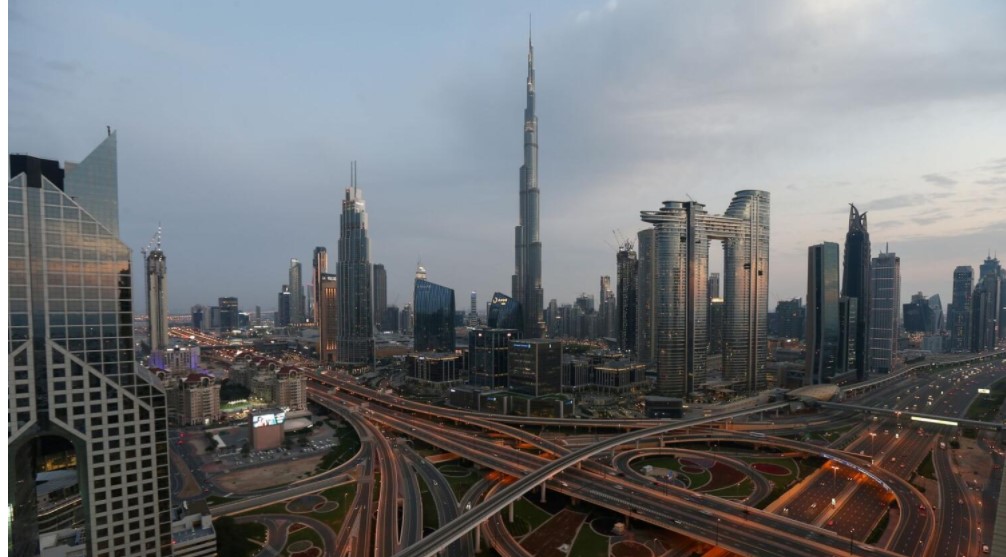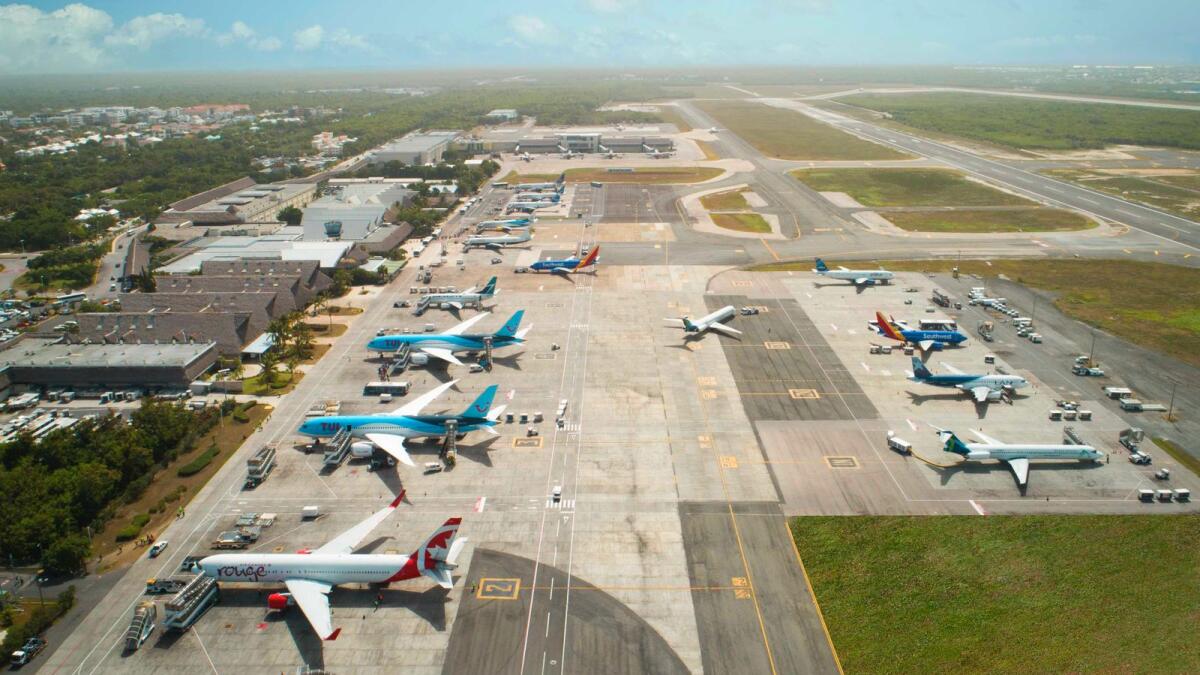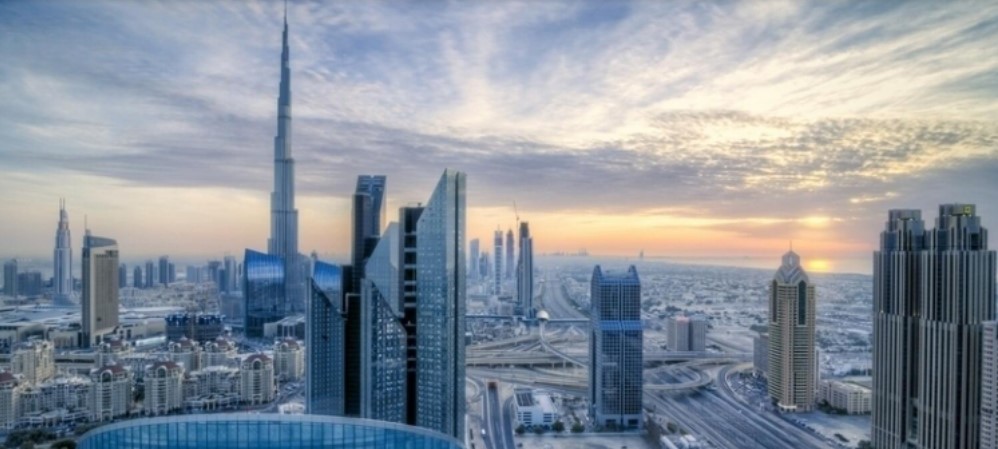
It’s been two months since the curtains were drawn on Expo 2020 Dubai.
Despite a year’s delay, the event successfully managed to bring the world together in Dubai. The preparations to welcome a global audience to the emirate began when Dubai was announced as the host of Expo 2020.
As a result, the real estate sector went into over-drive, developing properties in anticipation of the millions of visitors expected to come to the country. The industry soon realised that demand for short-term rental units and increased interest in property ownership, either as a resident or an investor, would rise rapidly. For many cities, hosting a mega event is now the single largest undertaking in urban development.
The first supportive argument for hosting a global event would be the potential increase in visitor numbers, a spotlight or halo effect that brings new attention and vibrancy to the host city. Similarly, expenditure on hosting a mega event is often justified via the multiplier effect and a boost to the national economy.
Real estate studies in a range of global cities do find a positive impact on property values. Though as we saw, these property price increases are not simply linear. Academic studies have found that the largest price increases in property prices hosting mega events occur in the five years after the event. So are we on a similar trajectory in Dubai post the expo? Following a dip in real estate activity during the beginning of the Covid-19 pandemic, housing prices in Dubai began to recover in 2021 in the run-up to Expo 2020, particularly in the luxury real estate sector, which ended the year with record-breaking transactional value and sales volume.
A market report by Property Monitor shows that property value in Dubai now stands at 55Dhs1,000 per square foot, the highest since January 2019. Additionally, it is reported that transaction volumes in February this year stood at 6,346, growing nearly 10 per cent monthly. Furthermore, a total of 12,119 sales transactions were recorded year-to-date, a 17.7 per cent increase over 2017, the previous best start to a year. Major public and private developers in the UAE have been focused on ensuring a faster execution of the ongoing projects to deliver the best quality product to investors.
The pace has also been a response to various government initiatives and amendments to laws that will undoubtedly attract more residents and long-term investors to the country. For example the recent amendments to the citizenship laws allow investors, professionals, special talents and families to seek long-term/permanent residence under certain conditions.
Additionally, the UAE has made many additions to its real estate laws. These include the new ‘Dubai Building Code’, which outlines a set of construction rules promoting sustain-able development and innovation in building design and reduction of energy and other running costs, which is critical in today’s ever-important ‘ESG’ investing.
However, with all these changes and an increased interest in buying a property, it is also imperative to look at the inventory currently available in Dubai while prices also seem to be climbing. A recent report by S&P Global suggested that property prices and rents in Dubai’s residential market will continue to increase in 2022.
In addition, Property Monitor reported that more than 3,000 off-plan residential units entered the market for sale in February. Town-houses represented 58.5 per cent by volume of this new inventory, while apartments and villas accounted for 36.8 per cent and 4.7 per cent, respectively.
According to Property Monitor, the month-on-month increase is largely the result of newly handed over projects that are now eligible for home financing, particularly for townhouses, which saw loan volumes increase by 58.9 per cent. At present, Dubai is witnessing a demand-outstripping-supply playbook; and with global inflation soaring, the increased costs of build-ing materials for new development and higher borrowing costs, new developments might stagnate, limiting new supply entering the market and pushing house prices higher. While Expo 2020 has been a major catalyst in real estate growth in the emirate, the next phase will be even more exciting.
Despite the rising real estate prices and increasing inventory, the interest from international and local buyers and renters will be an ongoing trend, with Dubai’s supportive government legislation being a key driver of new population growth over the next five years. The city is developing to accommodate more new businesses, more flexible ways of living and working in Dubai, and the recent trends in ‘lifestyle migration’ into Dubai will undoubtedly continue and boost future demand for the real estate sector.
source-gulfbusiness.com

Investors looking to enter Dubai’s luxury property market this year will need to brace themselves for what could be a record year for capital values.
Even as the pandemic-fuelled global property boom begins to abate, UAE demand is being helped by a limited supply of homes at the top end of the market, visa reforms and the role of property as a hedge against inflation.
“The uptick in the market since 2021 is still continuing, making many valuators and sellers price properties in anticipation of an upward trend,” says Chris Whitehead, managing partner at Luxhabitat Sotheby’s International Realty, which sold two of the top-value villas this year.
“This, combined with the reduced supply in the luxury properties segment, means there is at least a 3:1 ratio of buyer to a sought-after property.
"Naturally, this results in each transaction pushing the boundaries furthermore, which is why we are seeing more and more record transactions.”
:quality(70)/cloudfront-eu-central-1.images.arcpublishing.com/thenational/ODXZKZM2OZCL7NIE55KXJCYXVM.png)
Capital values in Dubai’s residential sector have expanded significantly over the past 12 months, particularly at the top end of the secondary market.
The wider residential market saw prices increase by 10.9 per cent in the year to May 2022, real estate consultancy CBRE says.
Villa prices rose 19.8 per cent, while apartments had an increase of 9.6 per cent.
But prime residential units — in Palm Jumeirah, Emirates Hills and Jumeira Bay Island — surged by 58.9 per cent over the past 12 months, according to a report by global consultancy Knight Frank.
It estimates that villa and apartment transactions between January and May 2022 alone were worth Dh61.9 billion ($16.85bn).
“Villas remain highly sought-after, not just by domestic buyers, but also by international high-net-worth individuals who continue to flock to the city to snap up the emirate’s most luxurious homes,” says Faisal Durrani, head of Middle East research at Knight Frank.
Investors rethink their priorities
Overall sales are being driven principally by foreign investors, Reuters reported in a May 30 poll of 13 property market analysts.
India and Europe remain strong source markets, according to Dubai-based property consultants Mira Estate.
Worldwide, economic interventions such as quantitative easing and low interest rates fuelled real estate demand during the pandemic, as lockdowns forced people to rethink their priorities.
“One could say the UAE was ready for this change and has the right solutions for local and international high-net-worth buyers, with multiple new developments located on the periphery of the city’s epicentres, which promised housing solutions with an enhanced community experience,” says Ari Kesisoglu, president of listings portal Property Finder.
Government initiatives, such as the expansion of the 10-year Golden Visa programme and new types of residence permits for retirees and remote workers, have contributed to rising prices.
A rapid Covid-19 vaccine campaign and the high-profile Expo 2020 Dubai further improved investors’ perception of the UAE.
“Simply put, Dubai offers greater lifestyle, security and value for money than other major cities in the world,” says Peter Smithson, sales director at Belleview Real Estate.
The government’s response to the pandemic means that investors have now added stability to that list, Mr Smithson says.
“When compared against other nation’s responses, this added stability is a major driving force in high-net-worth individuals flocking to Dubai, driving up demand for the luxury segment and subsequently causing a steep rise in property valuations,” he says.
Belleview set a new record for a Dubai property sale in March with a 10-bedroom beachfront villa on Palm Jumeirah for Dh280 million ($76.2m). The sale breached the previous high of Dh185m set in 2015.
source-www.thenationalnews.com

Recent months have boldly played around different recovery scenarios for the UAE’s real estate sector – some say it’s driven by the government’s stellar handling of the Covid-19 health crisis; others pin it down to the recently concluded Expo 2020 Dubai.
Wherever the conversation goes, we know the recovery story borrows its plot points from a combination of both factors. The pandemic made the world realise the importance of global mobility – and this seems to be the UAE’s strategic approach in stimulating the economy, with the real estate industry as one of the biggest winners.
The important question to ask is how do we keep this real estate momentum going?
The year 2021 showcased an extraordinary display of resilience from Dubai. After a tumultuous year of global economic standstill, the emirate’s economy expanded at an estimated 3.5 per cent. The government played a huge role in ensuring the economy endured the pandemic – from introducing short-term economic relief packages, to relaxing visa and social regulations, to continue attracting talent and investment.
According to S&P Global, this growth is set to continue in 2022, with the GDP predicted to increase by 2.5 per cent and 2 per cent in 2023. Dubai’s population is also forecast to rise 2 per cent per year in 2022 and 2023. These numbers aided the much-anticipated comeback of Dubai’s property market, as investors and residents gradually regained their confidence in the emirate’s, and the wider UAE’s, economic health.
Transactions surged 60 per cent last year, while average annual prices of residential properties jumped 9 per cent and 6 per cent in Dubai and Abu Dhabi respectively, by December 2021.
Recent policy initiatives that make it easier for foreigners to live and work in the UAE have also bolstered the demand for real estate properties. Experts agree that this progressive approach will continue cementing the country’s position as a great enabler of global mobility.
The uptick in the real estate industry provides an interesting vantage point of realisation as people try to understand the impact of Covid-19 – particularly in the way it perpetually changed how we live our lives. Navigating a modern-day pandemic has pushed people to rethink their lifestyles, with community living becoming a preferred option – and even a priority – for many.
For others, especially foreign investors, reevaluating lifestyles meant looking for a country that has emerged from the pandemic relatively unscathed. The UAE was one of the first countries to successfully launch a nation-wide vaccination campaign, allowing it to open borders earlier than most other countries. This drew a lot of international attention, including from potential residents who now have more visa options.
Projections point to a continuous rise in property transaction volumes in the UAE, with a particular stellar performance by off-plan projects, and larger properties within community spaces.
The Expo 2020 Dubai has also put a spotlight on the potential of the emirate – not just in hosting international events amid a global crisis, but in strengthening its potential as a hub for businesses and residents alike. Over 24 million people visited the world Expo over its 6-month run, and the Dubai government has made its legacy plans clear from the outset.
Commercial real estate took more hits from the pandemic, as tenants were forced to make difficult business trade-offs, as they also accelerated digitalisation efforts to keep up with what seems like a consumer exodus to virtual retail spaces. Hawk-eyed analysts are watching the sector closely to unearth more predictive insights as pandemic recovery continues.
In the UAE at least, footfall to brick-and-mortar shops have generally recovered from its 2020 low, and while e-commerce dominated consumer spending, physical shopping remains a central role in the country’s lifestyle – for residents and tourists alike. Creativity will define the next few years in commercial real estate – and not just “regular creativity”, but a type that can cut through the promises of advanced life-like inventions that appeal to people’s natural inclination towards comfort and convenience.
Real estate operators and leaders are sitting on the precipice of a new lifestyle era – modern and contemporary ways of how societies live, work, shop, and play. The numbers in the UAE seem to be on our side, but the real challenge is preserving that trajectory, and ultimately unlocking the future of the industry.
source-www.thenationalnews.com

Dubai has recorded 6,652 sales transactions worth Dhs18.4bn in May 2022, the highest volume of transactions for the month in the past decade.
Dubai recorded a 51.60 per cent increase in transaction volume and 66.14 per cent growth in value in May, in comparison to the same period last year, data from Mo’asher, the emirate’s sales and rental performance index launched by Dubai Land Department (DLD), showed.
The base year for Mo’asher – launched by DLD in cooperation with Property Finder- is 2012, while the base month for the monthly index is January 2012, with the base quarter for the quarterly index being Q1 2012.
In May 2022, Mo’asher recorded a 1.296 monthly index for sales and an index price of Dhs1,261,379. The apartment monthly index recorded 1.368 and an index price of Dhs1,175,363, additionally the villa/townhouse monthly index recorded 1.338 and an index price of Dhs2,150,469.
Furthermore, it recorded a 0.962 monthly index for rental and an index price of Dhs52,013. The apartment monthly index recorded 0.966 and an index price of Dhs 47,910 and the villa/townhouse monthly index recorded 0.867 and an index price of Dhs132,401, official news agency WAM reported.
The secondary market for sales transactions accounted for 58.55 per cent in terms of volume and 66.29 per cent in terms of value, signalling interest in ready and off-plan properties, especially apartments, which accounted for 82.34 per cent of total transactions, whereas villas/townhouses represent around 17.66 per cent.
The emirate posted 34,126 transactions in the first five months of the year compared to 20,713 transactions during the same period in 2021, posting a 64.76 per cent growth rate year-on-year. Meanwhile, the total rental contracts in May 2022 attained 35,327 registered leases of which 59.6 per cent included new contracts whereas 40.4 per cent were renewals.
Annual contracts acquired 80.9 per cent of the total contracts while 19.1 per cent were non-annual. Furthermore, the registered leases for residential purposes acquired around 73.8 per cent of the total contracts, while 25.3 per cent were registered for commercial purposes.
The top areas according to Ejari Registrations for the most rental transactions in May 2022 were Jabal Ali First (1,398 contracts), Al Warsan First (1,285), Business Bay (1,029), Al Barsha South Fourth (958), Nadd Hessa (957), Marsa Dubai (946), Muhaisanah Fourth (934), Al Nahda Second (893), Al Thanyah Fifth (798), and Al Karama (776).
In 2021, Dubai recorded the highest value of real estate sales transactions in 12 years, with Dhs151.07bn worth of properties sold throughout last year.
source-gulfbusiness.com
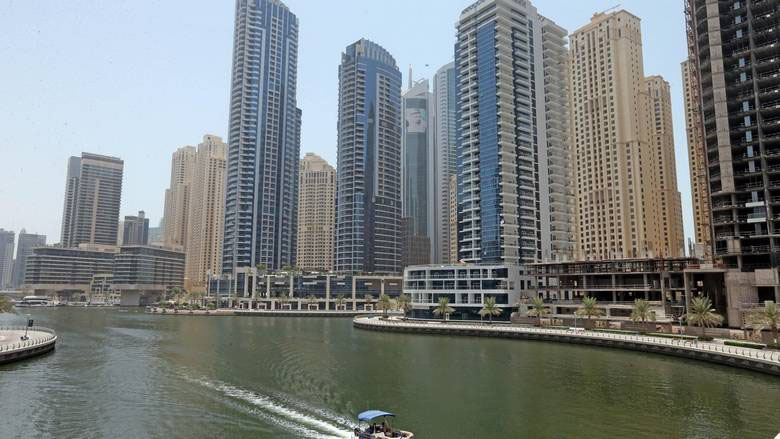
Dubai’s real estate continued to attract investors and end-users as home sales surged on rising demand in April despite a steady rise in prices, the latest data shows.
Home sales recorded year-on-year growth of 55.9 per cent last month as the demand for villas and apartments remained intact. However, home sales transactions registered a 17.4 per cent decline month-on-month basis.
“The month-on-month performance saw cash and mortgage sales of ready properties decline 13 per cent and off-plan Oqood (contract) registrations down 23.3 per cent,” according to the ValuStrat Price Index (VPI).
Real estate shines in post Expo
In another development, Property Finder’s proprietary demand data showed that the emirate recorded 6,983 real estate sales transactions worth Dh18.2 billion in April, the highest ever for the month since 2009.
Secondary market sales transactions, comprising 60 per cent of the total, constituted 4,212 transactions worth Dh12.86 billion, while off-plan properties, comprising the remaining 40 per cent, constituted 2,771 properties worth a total of Dh5.33 billion.
The real estate witnessed 45.48 per cent more transactions this April this year compared to the same month last year, resulting in a 66.62 per cent spike in value. This is broken down into a 46.2 per cent increase in the secondary volume and a 63.86 per cent increase in value, as well as a 44 per cent increase in off-plan sales transactions and a 73.68 per cent increase in value, according to Property Finder’s data.
“All eyes were on the real estate performance post Expo 2020, and with April 2022 performing the highest since 2009, the data is a strong testament to the growing appeal for the Dubai Real Estate Market. We also see a positive sentiment for investment opportunities following various governmental initiatives, including the recent new categories added to the golden visa rules, making Dubai’s properties one of the most preferred investment assets for the long term,” said Scott Bond, UAE country manager at Property Finder.
Slow progress
Haider Tuaima, director and head of real estate research at ValuStrat, said Dubai real estate prices would continue to rise this year but at a slower pace.
“So far, transaction volumes have exceeded forecasts; however, as prices increase to potentially unaffordable levels, together with rising interest rates, we don’t expect this trend will continue at the same pace seen in 2020 and 2021. Residential transactions in April declined 17.4 per cent compared to March,” Tuaima told Khaleej Times on Monday.
Promising future
Ata Shobeiry, chief executive of Zoom Property, said 2022 looks promising for the Dubai property market and it is expected to pack in a solid number in terms of sales transactions and figures.
“The recently reformed visa policies, launch of new developments, and a strong recovery will keep attracting overseas investors. The number may not be as high as the 2014 peak, but the growth will certainly be substantial,” Shobeiry told Khaleej Times on Monday.
High-value deals
The residential price index, which posted a one per cent increase in capital values to 79.8 points in April compared to a base period of January 2014, noticed a high demand for luxury properties. The index, which recorded 19 transactions valued at over Dh30 million last month, highlighted a sale of a six-bedroom villa located in Dubai Hills for Dh96 million.
“Capital value growth slows to a sustainable monthly pace for villas, whilst apartments see no significant change. Dubai’s typical villa VPI reached 95.7 points; however, most typical apartments saw little or no monthly difference in price, now at 69.7 points,” according to the report.
Villas in demand
Villas, which represent 13 per cent of the market, saw capital values grow at a slower monthly rate of 1.8 per cent in April and moved closer to hitting January 2014 peak. Average year-on-year villa prices surged 33.8 per cent in April, and the upward trend may continue this year but at a slower pace.
“We expect villas in Dubai to continue to witness high growth, particularly in areas with little or no pending new supply. Some areas will witness the price growth rate decelerate or stabilise,” Tuaima said.
Arabian Ranches (40.6 per cent), Jumeirah Islands (38.8 per cent), The Lakes (36.6 per cent), Jumeirah Village (34.9 per cent), and Palm Jumeirah (34.6 per cent) remained the most popular villa communities in April.
Some areas recorded a nominal increase in villa prices, as noticed in case of Mudon (up 0.9 per cent) and Green Community West (0.8 per cent).
Shobeiry said the villa sector would continue its glorious run during the rest of 2022.
“Both the prices and demand will rise, making them beneficial to more investors and sellers. In particular, top villa communities will continue producing strong figures for the Dubai property market,” he said.
Apartment prices pick up
Apartment prices also picked up in April and recorded a high single-digit growth due to rising demand in the market. The VPI noticed an 8.1 per cent average hike in apartment prices across the emirate last month, while some areas posted solid double-digit growth due to high demand from the investors and end-users.
Apartments in Jumeirah Village broke their records with the most significant number of homes sold in one month since 2010.
“Except highly desired prime locations, most apartments in Dubai will likely see single-digit price increments this year,” Tuaima said.
Palm Jumeirah (20.8 per cent), the Burj Khalifa tower (16.4 per cent), Jumeirah Beach Residence (15.6 per cent), and The Views (10.3 per cent) remained the most popular areas for apartments in April. However, Jumeirah Village and Dubai Sports City both recorded one per cent growth, and Dubai Production City (0.5 per cent) were among the areas that registered the lowest annual price growth last month.
Shobeiry said the gap between the percentage growth of apartment and villa prices would continue to narrow.
“During the first quarter of 2022, apartment prices grew nearly double digit. I believe this milestone will be achieved towards the end of the second quarter as the market sentiments look positive,” he said.
Emaar leads
Emaar remained a favourite developer of the property buyers as the projects developed by the leading real estate company ranked high in the sales chart last month.
Emaar (24.2 per cent), Damac (15.1 per cent), Nakheel (6.3 pet cent), Select Group (3.7 per cent), and Dubai Properties (3.7 per cent) secured the top five positions on the sales chart in April.
Top off-plan, ready homes locations
Business Bay (12.7 per cent), Dubai Creek Harbour (8.8 per cent), and Downtown Dubai (8.8 per cent) led the off-plan locations last month while Damac Lagoons (13.4 per cent), Jumeirah Village (8.4 per cent), Dubai Marina (seven per cent) and Business Bay (4.7 per cent) were the most transacted areas for ready homes.
According to Property Finder’s proprietary demand data, the top areas of interest in terms of transactions for villas or townhouses in April 2022 were Dubai Hills Estate, Palm Jumeirah, Arabian Ranches, Damac Hills (Akoya by Damac), and The Springs.
As for apartments for the same period, the top areas of interest were Dubai Marina, Downtown Dubai, Palm Jumeirah, Business Bay and Jumeirah Village Circle.
source-www.khaleejtimes.com

Property investors from the UK, Italy, and France claimed prime spots in the top-10 list of foreign investors in Dubai as the emirate’s real estate sector witnessed the dominance of the secondary market in the first quarter.
The emirate’s resurgent realty market recorded the best ever quarter since 2010, with a total of 20,539 sales transactions valued at Dh55.5 billion.
Investors from India and Pakistan also made significant investments in Dubai real estate during the quarter, which also saw a big increase in Canadian investors and buyers. Investors from Russia, Lebanon, and China were among the other three nationalities in the top-ten list.
Secondary market shines
Citing official data, the Zoom Property Insights said the secondary market dominated the real estate sector as it constituted around 58 per cent of total sales transactions, while the remaining 42 per cent of sales were recorded in the primary market.
In April, the Dubai real estate market enjoyed its second highest ever April in terms of transactions, according to the latest data. A total of 60 per cent of the transactions were in the secondary market and 40 per cent in the off-plan market. This represents a 46 percent increase in volume and 67 per cent increase in value year-on-year, and comes after a record-breaking March.
Upward trend to continue
April saw a total of 7,009 sales transactions worth Dh18.3 billion, according to data available on the open data platform of Dubai Land Department. It was also the second highest April on record for sales volume and value, with April 2009 being the highest. Among the top areas for sales transactions in April for villas and townhouses was Arabian Ranches-3 for off-plan, and Dubai Hills Estate for the secondary market.
The market is expected to continue its upwards trajectory with more foreign investors pouring into the market, owing to visa reforms and economic stability. The changing scenario in the Dubai labour law and the abundant entrepreneurial opportunities are also attracting a huge number of investors, according to Zoom Property Insights.
Ata Shobeiry, CEO at Zoom Property, credits overseas investors for the exceptional performance of the property market in recent months.
“The rising demand, property prices, and ROI can be majorly accredited to the influx of overseas investors. Expo 2020 facilitated the visit of many first-time investors, who ultimately decided the market is worth investing in. I believe the recent announcement of the new green residence visa and broadening eligibility criteria for the golden visa will provide more opportunities for foreign investors, resulting in an even better performance in subsequent quarters,” said Shobeiry.
European investors dominate
The market remained dominated by European investors during the first quarter, with the UK, Italy, and France occupying the first, third, and seventh spots on the list of top nationalities investing in Dubai. Canadian buyers increased by 116 per cent during Q1 2022 as compared to Q1 2021. Investors belonging to the sub-continent, India and Pakistan, ranked second and eighth respectively, also contributed to the remarkable performance of the property market, according to the Zoom Property Insights.
The number of Russian investors in the Dubai property market has increased by over 65 per cent, as the country enjoys a fifth spot among the top investing countries. Lebanon and China are the other two countries that made significant investments in the Dubai property market during Q1, 2022.
According to Zoom Property Insights, foreign investors belonging to other regions are also expected to enter the market as it continues to show its high performance. Experts believe that 2022 will conclude on a stronger note due to the increasing prices and demand.
source- gulfnews.com
 LONDON, May 6 (Reuters Breakingviews) - Dubai and Abu Dhabi are making a play for the cryptocurrency crown. Big crypto exchanges like FTX, last valued at $32 billion, are setting up shop in Dubai. There are a number of reasons why it might be to their taste.
LONDON, May 6 (Reuters Breakingviews) - Dubai and Abu Dhabi are making a play for the cryptocurrency crown. Big crypto exchanges like FTX, last valued at $32 billion, are setting up shop in Dubai. There are a number of reasons why it might be to their taste.
Crypto is growing fast: total transactions volumes grew over 500% to $15.8 trillion in 2021, according to Chainalysis. Yet plenty of Western regulators seem to hate it. European Central Bank board member Fabio Panetta and the U.S. Securities and Exchange Commission’s boss Gary Gensler have both compared the asset class to the “Wild West”. Perhaps as a result, even the two largest cryptocurrencies, bitcoin and ether, are yet to have a dedicated supervisory body in the United States and the UK. Singapore has imposed stricter regulation, despite expressing interest in the market.
That leaves a gap for an ambitious locale willing to build its regulatory architecture around crypto, rather than vice versa. Step forward Dubai and Abu Dhabi. In the last few months, the pair have handed out more than 30 licences and passed new laws for crypto exchanges to operate in the cities. The exchanges have responded. Binance is recruiting for over 100 positions in the Gulf read more , while boss Changpeng Zhao has moved from Singapore to Dubai and bought a home there. FTX and Kraken are heading Gulf-wards, too.
The mutual love-in has a certain logic. Total private wealth held in the United Arab Emirates rose by $46 billion between 2019 and 2021 as some 5,600 millionaires moved to the country, according to the Global Citizens Report, and an influx of Russian oligarchs read more should amplify the trend. Around 25% of Middle East millionaires already invest in some kind of crypto, data from consultant Knight Frank shows. Meanwhile, local businesses like grocery delivery service YallaMarket and property firms are accepting payments in crypto, and the former has floated the idea of paying salaries in the currency. A global YouGov survey found that trust in cryptocurrencies was highest among adults in the UAE.
A Gulf crypto hub also carries obvious risks. The Financial Action Task Force recently said the UAE wasn’t doing enough to counter money-laundering risks, and crypto’s popularity with criminal elements read more raises the risk that a crypto-fuelled scandal could dilute the UAE’s good name instead of enhance it. On the other hand, if these elements can be managed and regulated then it could equally give the region what it could really use: a leading position in a major financial growth sector.
source- www.reuters.com

source- ww.timesnownews.com
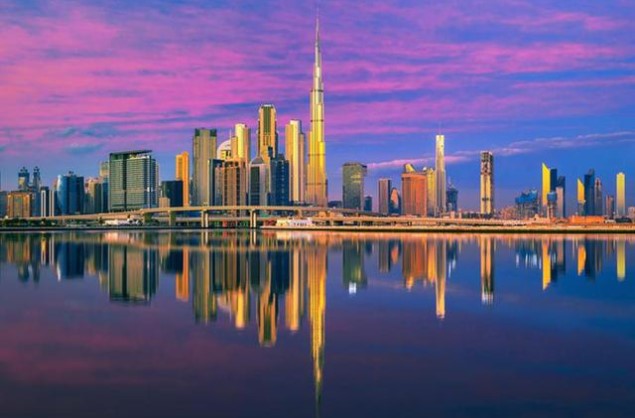
source- www.dubaiweek.ae
source- www.khaleejtimes.com


